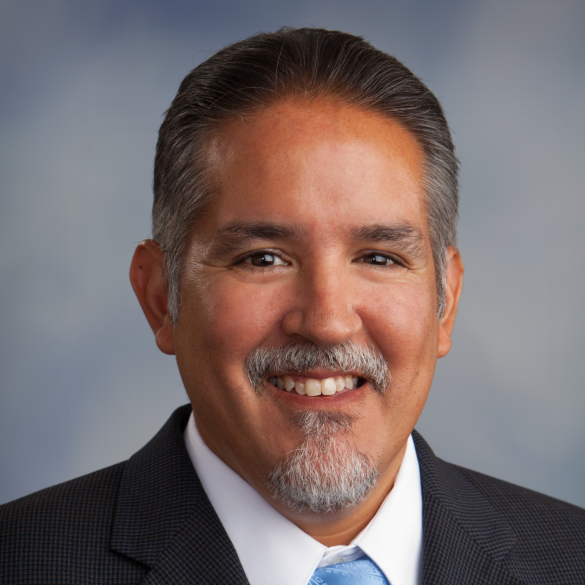The prostate is located just below the bladder and is part of a male's reproductive system. The walnut-sized gland surrounds the urethra and produces fluid that makes up part of semen.
Prostate cancer occurs when cells in the prostate grow out of control. Aside from skin cancer, prostate cancer is the most common cancer affecting men in the United States. Although most types of prostate cancer grow slowly and may require no immediate treatment, some types are aggressive and can quickly spread to other areas of the body.
Enlarged Prostate Versus Prostate Cancer
As men get older, their prostate gland tends to become larger. This can narrow the urethra, decrease urine flow, and cause other symptoms. When this happens, it is called benign prostatic hyperplasia or enlarged prostate. This is not the same condition as prostate cancer.
Because benign prostatic hyperplasia and other conditions can cause symptoms similar to symptoms of prostate cancer, it is important to consult a specialist if you’re symptomatic. Schedule an appointment with one of our board-certified urologists to discuss your symptoms and determine if you may be a candidate for the Urolift procedure for enlarged prostate relief.
Risk Factors for Developing Prostate Cancer
The risk of developing prostate cancer increases with age, but all men are at risk for the disease. About one in 13 American men will develop prostate cancer during their lifetime, and 2 to 3 men will die from it.
Some men are at increased risk of getting or dying from prostate cancer, including:
- African American men
- Men with a family history of prostate cancer
- Men with a personal history of prostate cancer
- Men who are older than 55 years of age
Symptoms of Prostate Cancer
Symptoms of prostate cancer vary considerably, and some men may not experience symptoms at all. Advanced prostate cancer may cause symptoms such as:
- Weak or interrupted flow of urine
- Urinating often, especially at night
- Difficulty starting urination
- Trouble emptying the bladder completely
- Pain or burning during urination
- Painful ejaculation
- Erectile dysfunction
- Losing weight without trying
- Blood in the urine
- Blood in the semen
- Bone pain or pain in the pelvis, back, or hips that doesn’t go away
Note: These symptoms may be caused by conditions other than prostate cancer.
Prostate Cancer Screening
Prostate cancer screening helps find cancer before it causes symptoms and before it has an opportunity to spread.
There is no standard screening test for prostate cancer, but a specific blood test and a digital rectal examination are the two most common screening methods currently used. If the results of either of these two tests are abnormal, your doctor may recommend additional blood tests, imaging and/or a biopsy to determine if you have prostate cancer.
Additionally, genetic testing for prostate cancer can let you know if you are at a higher-than-average risk for developing the disease.
Prostate Specific Antigen (PSA) Test
The prostate-specific antigen (PSA) test measures the level of PSA in the blood. PSA is made by the prostate and blood levels of this substance may be higher in men with prostate cancer. However, other conditions can cause elevated PSA levels, so this screening test is not an accurate indicator of prostate cancer.
Generally, the higher the PSA level, the more likely it is that a prostate problem is present. But age, race, and many other factors can also affect PSA levels, such as:
- An enlarged prostate
- A prostate infection
- Certain medical procedures
- Certain medications
Digital Rectal Examination (DRE)
A digital rectal examination (DRE) is when your health care provider inserts a gloved, lubricated finger into your rectum to feel for any abnormal signs, such as unusual thickness or shape. DRE is quick, safe, and easy to perform, but it is not an accurate method of detecting prostate cancer and should be used along with a PSA test.
An elevated PSA (prostate-specific antigen) blood test and abnormal findings on a digital rectal exam are the most common triggers for a prostate biopsy.
Who Should Get Screened?
Prostate cancer that's detected early — when it's still confined to the prostate gland — has the best chance for successful prostate cancer treatment.
However, because many prostate cancers don't require treatment, screening can lead to unnecessary worry. Additionally, false positives on screening tests can lead to unnecessary biopsies and other procedures.
Men between the ages of 55 and 69 should talk with their doctor about whether prostate screening is right for them. Men who are older than 70 years should not be screened for prostate cancer unless symptomatic.
Diagnosing Prostate Cancer
Diagnosis of prostate cancer typically involves a surgical biopsy to remove a small piece of tissue to look for the presence of cancer cells. This tissue can also be used to help determine the type of prostate cancer you have and how likely it is to spread.
Bone scans, chest x-rays, Pet scans, MRI, and CT of the pelvis and abdomen can help determine if higher-stage cancers have spread to other areas of the body.
A very accurate technology for cancer testing, a targeted MRI/Ultrasound fusion biopsy, creates a 3D roadmap of your prostate to make otherwise hidden areas visible. This advanced diagnostic tool has improved early detection, prognosis, and treatment options.
Prostate Cancer Treatment Options
Your treatment options depend on your age, general health, and the type of prostate cancer you have. Our cancer specialists will work with you to determine the right course of treatment for you.
If your treatment team believes your cancer is unlikely to spread or grow quickly, close monitoring with regular PSA tests may be all the treatment you need.
Low-stage prostate cancers, especially in healthy younger men, are typically good candidates for radical prostatectomy, or removal of the entire prostate.
For older men or those in poor health who prefer alternate treatment options, external-beam radiation, hormone therapy (androgen-deprivation therapy), or interstitial brachytherapy (seeds) may be the right course. Additionally, some older men choose to undergo no tests or prostate cancer treatment, especially early in the disease before symptoms of prostate cancer begin.
Robot-Assisted Surgery for Prostate Cancer
Prostate removal is possible at NorthBay Health using the da Vinci Xi robotic surgery system. During a robot-assisted prostatectomy, your surgeon will make tiny excisions, through which a tiny camera and specialized tools are inserted to remove the prostate gland with exceptional precision.
Laparoscopic robot-assisted prostate removal involves less pain and blood loss, a quicker recovery time, and a faster return to normal activities than other surgical prostate cancer treatment options.
Collaborative Approach to Prostate Cancer Treatment
If you’re diagnosed with early or later-stage prostate cancer, your Oncology and Urology medical specialists at NorthBay will plan a unique course of treatment for your type and stage of cancer.
Plus, as a member of the Mayo Clinic Care Network, our providers have special access to the knowledge, expertise, and resources of Mayo Clinic Specialists.
We're with You for the Journey
- Cancer Symptom Management: We are dedicated to helping you manage your symptoms of prostate cancer with the goal of relieving pain and improving quality of life for you and your family.
- Nutrition and Cancer: A healthy diet not only improves your overall health, but it is essential to cancer recovery. We provide nutrition education and support before and during prostate cancer treatment for colorectal cancer.
- Emotional Support: To answer your questions and provide emotional support, crisis intervention, education, and other assistance, ourcancer support services and oncology nurse navigators are available to support you and your family through your cancer journey











